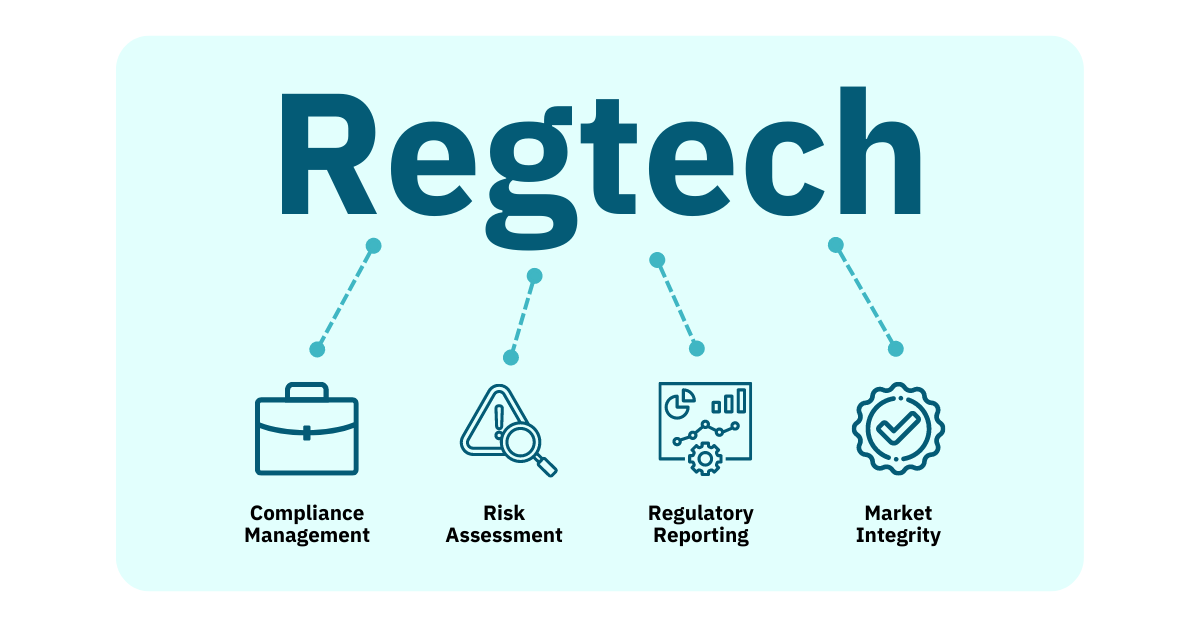In today’s rapidly changing digital financial world, regulatory technology (RegTech) has become a key tool to help fintech companies better meet regulatory requirements. To comply with financial regulations, RegTech uses technology (primarily software) to simplify and further automate processes. As the financial sector becomes more digital and complex, regulatory compliance becomes increasingly difficult. This is especially true for fast-moving fintech companies. RegTech offers better, faster, and more accurate tools to ensure compliance and helps connect new ideas to regulations.
How Financial Regulations have Become More Complex
Over the past decade, particularly since the global financial crisis, banking regulatory rules have become increasingly stringent. Governments have put in place strict rules to combat money laundering, fraud, terrorist financing, and structural risks. These rules vary by region and need to be constantly updated, making it difficult for companies to remain compliant. Traditional compliance methods require a lot of work and resources, which can be difficult for fintech companies that need to be responsive, scalable, and innovative. RegTech (regulatory technology) is digitizing and simplifying a lot of regulatory work.
How RegTech Works in the Financial Sector
RegTech uses tools such as artificial intelligence, big data analytics, cloud computing, and machine learning to help companies monitor compliance in real time. These technologies can analyze vast amounts of data to identify potential risks, flag suspicious activity, and generate reports required by regulators. Fintech companies don’t need to deploy large compliance teams to manually review transactions or evaluate changes in legislation. Instead, they can use RegTech systems to perform these tasks automatically, quickly, and accurately. This helps companies reduce human error, lower costs, and meet government requirements faster.
Manage Data and Reports in Real Time
Financial regulators often require institutions to submit reports detailing their transactions, activities, and risk exposure. Fintech companies can use RegTech to collect, analyze, and share this information quickly and accurately. With smart data analytics and dashboards, companies can always have insight into their compliance status. This openness and timeliness are crucial in areas where reporting errors or delays can have serious regulatory implications. Real-time insights also help businesses make smart decisions quickly, reducing overall risk.
Improve Cybersecurity and Keep Customer Data Safe
The second key area of value for regulatory technology (RegTech) is data privacy and security. Cybercriminals are keen to target FinTech companies because they handle private financial and personal data. With the introduction of data security regulations such as the General Data Protection Regulation (GDPR) and the California Consumer Privacy Act (CCPA), keeping customer data safe is not only a legal requirement but also helps build trust. RegTech solutions can monitor how data is used, detect violations, and ensure that customer data is stored and processed in accordance with regulatory requirements. This added layer of security helps FinTech companies protect their reputation and avoid breaking the law when it comes to data.
Agile Operations and Low Costs
Using traditional compliance methods can be costly and time-consuming. It often requires a large number of compliance officers, lawyers, and IT support. FinTech startups and mid-sized companies often struggle to manage such a large amount of resources. RegTech (regulatory technology) helps reduce these costs by automating compliance tasks and reducing manual workload. This allows FinTech companies to better utilize resources, focus on new ideas, and grow their business without having to deal with complex regulations. The flexibility of RegTech allows companies to quickly adapt to new regulations and market changes.
Global Expansion and Cross-Border Compliance
Many fintechs want to do business in multiple countries, each with their own currency regulations. Keeping up with all these different and complex requirements can be difficult. RegTech provides businesses with a centralized system that simplifies cross-border compliance. Fintechs can operate globally without sacrificing compliance because they can stay up-to-date on regulatory changes in different locations and adapt processes accordingly. This ability to collaborate with people across the globe is especially important in the digital world, where users and transactions are not geographically limited.
Collaboration Between RegTech Providers
For RegTech to succeed, solution providers and fintechs must work well together. RegTechs must keep up with global regulatory changes and continually improve their systems to meet new legal needs. On the other hand, fintechs must be willing to add these tools to existing systems. This collaboration ensures that RegTech products remain practical, effective, and aligned with business objectives. As the fintech industry grows, collaboration is essential to ensure that new ideas and new regulations can coexist harmoniously.
The Future of RegTech
As technology continues to evolve, RegTech will become an increasingly important part of the FinTech landscape. Companies will be able to use artificial intelligence and predictive analytics to predict legal risks in advance. Blockchain-based compliance tools can make transaction data more transparent and difficult to manipulate. Furthermore, the push for real-time compliance monitoring will change the way financial services are provided and monitored. RegTech is not a quick fix but a necessity for FinTech companies to continue to thrive in this increasingly stringent regulatory environment.
Conclusion
RegTech is changing the way FinTech companies deal with compliance issues by providing smarter, faster, and cheaper solutions. In an industry where new ideas are constantly emerging, it is crucial to stay compliant and not get left behind. RegTech helps FinTech companies deal with the complex rules of regulators while improving security and building trust between customers and regulators. With the introduction of new financial regulations, RegTech will become even more important. These are not just practical tools; they are essential for any FinTech company that wants to succeed and gain trust in the modern financial world.
FAQs
1. Does RegTech reduce compliance costs?
Yes, RegTech reduces operational costs and reduces the need for human labor by automating many regulatory tasks.
2. Is RegTech only useful for large enterprises?
No, RegTech is useful for all types of companies, but it can be particularly useful for small and medium-sized FinTech companies that want to comply with regulations in a cost-effective way.
3. How does RegTech improve security?
It monitors how data is used, looks for threats, and ensures that privacy laws are adhered to when processing data. This helps to keep customer data safe.
4. Is RegTech used globally?
Many RegTech solutions are designed to help companies comply with regulations in multiple countries, meaning they can be used globally.
5. Are RegTech services secure?
Reputable RegTech platforms prioritize security and use encryption, authentication, and monitoring tools to protect private data.



